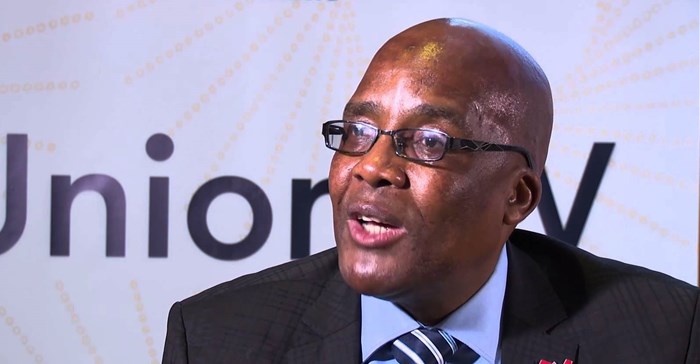President Cyril Ramaphosa indicated in his State of the Nation Address (Sona) last week that in 2019 government will take a significant step towards universal health coverage that will bring quality healthcare to all South Africans.

Health Minister Aaron Motsoaledi
The National Health Insurance (NHI) delivery model will be based on the primary healthcare approach, which emphasises the importance of providing preventative, promotive, curative, promotive and rehabilitative services.
"By applying the principle of social solidarity and cross-subsidisation, we aim to reduce inequality in access to health care. Realising the magnitude of the challenges in health care, we have established an NHI and quality improvement war room in the Presidency.
“This war room brings together various key departments to address the crisis in the public health system while preparing for the implementation of the NHI,” said Health Minister Aaron Motsoaledi.
He added that government is guided by the insight that improving the health system and introducing NHI are two sides of the same coin.
He said after extensive consultation, the NHI Bill will soon be ready for submission to Parliament.
Role player Involvement
“The NHI will enable South Africans to receive free services at the point of care in public and private quality-accredited health facilities.
“Repairing our national health system is an endeavour that requires the input, involvement and innovation of all role players who understand that good health makes for a good life and a good economy.
“At a time when we are laying the foundations for increased investment in our economy and we are developing the skills of our people to be active in this economy, it is essential that we build and maintain a healthy nation,” he said.
Motsoaledi’s remarks and the launch of the report come after the health sector held a summit in Ekurhuleni in October 2018. Deputy President David Mabuza officiated the summit under the theme: "Strengthening the South African health system towards an integrated and unified health system”.
During the summit, concerns were raised about the poor quality of healthcare that people experience in clinics and hospitals during their moments of vulnerability.
The complaints varied from inadequate access to medicines and equipment; inadequate numbers of staff at facilities; the unprofessional conduct of staff as well as labour unrest; corruption and theft of hospital property.
High cost of private healthcare
One of the barriers to access to healthcare, said the minister, is the unsustainably high cost of private care.
“Many users of this care experience above-inflation increases in medical schemes contributions, and the failure of medical schemes to pay for patient services that have been rendered.
“Several organisations have raised concerns with me regarding the dysfunction of the health system, to the point that it is clear that the system is in crisis and needs urgent rehabilitation. These are issues that must be addressed collectively by all stakeholders if we are to prevent a collapse of our health system,” he said.
There was a need for a robust, efficient and caring health system in a country where more than seven-million people live with HIV; rising rates of diabetes, hypertension and cancer; and where maternal and neonatal death rates must be reduced.
Health sector drafting a compact to improve health outcomes
Motsoaledi said that last year’s summit proposed a centralised, national procurement system, which will achieve economies of scale and assist in addressing corruption.
The success of a quality health system rests on information systems that can generate valid information at the right time and in the right format for decision making and monitoring at all levels of management, taking into account the need for patient confidentiality.
“Having identified critical challenges, the summit called on government to urgently prioritise the filling of critical vacant posts.
Sustainable financing model
“The summit tasked National Treasury to develop a sustainable financing model, and urged provinces to prioritise their financial resource allocation to ensure the delivery of quality health care is not compromised,” he said.
Motsoaledi said further proposals relate to the development of expertise and funding to implement government’s health infrastructure plan in a manner that will respond to changing population and clinical dynamics.
This, the minister said, demands stronger coordination between the Department of Health and partners such as the Department of Public Works.
The summit acknowledged the critical role the private sector has to play in the realisation of universal health coverage and the vision of the NHI, and called for inclusive process started through the summit to continue.
“Through this inclusive and collective approach, the Presidential Health Summit has pointed the way forward not only for health, but for other key sectors where inclusive engagement can make a great difference in the quality of life of South Africans.
“The summit has underlined once more the benefit of working together as a nation and building greater understanding through the involvement of a wide range of persuasions and expertise."
He said a Presidential Health Summit Compact, based on the summit's outcomes, was being put together which commits sectors to work together to implement identified solutions.












































